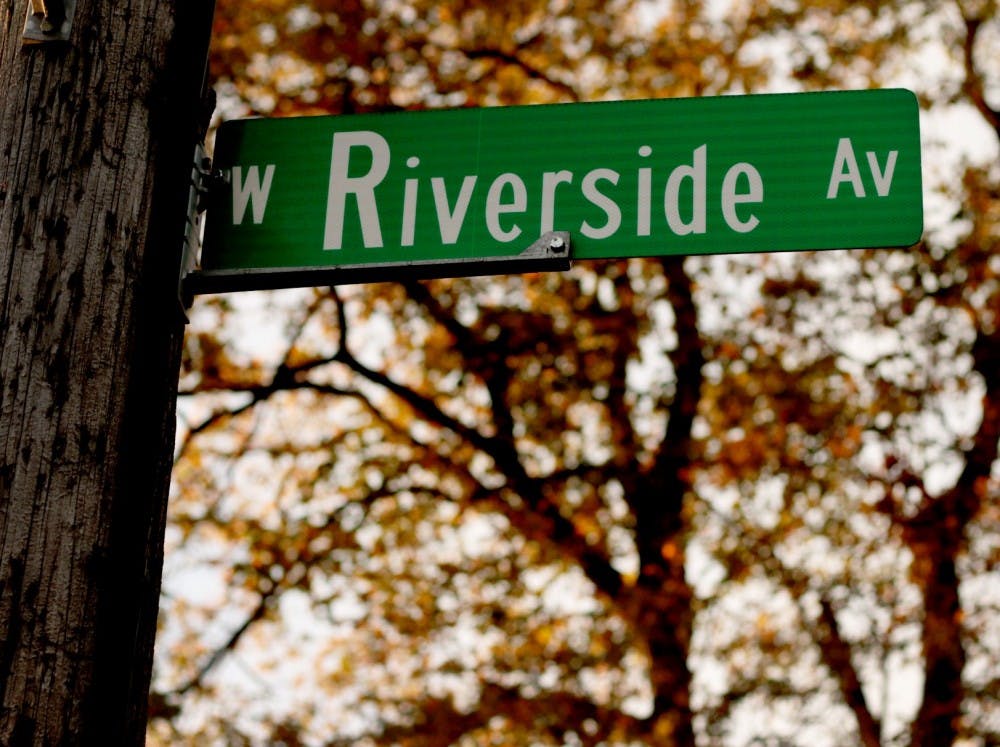Editor's note: A student in this story has remained unnamed to protect their identity.
Correction: A previous version of this story indicated that all fraternity houses are located on Riverside Avenue. Only seven of Ball State's fraternity houses are located along Riverside Avenue.
Ball State fraternities within the Interfraternity Council are now prohibited from hosting or co-hosting social events with or without alcohol for the next three months, university spokesperson Kathy Wolf said.
RELATED: Ball State, 13 fraternities agree to 'pause' all social events
The 13 fraternities within the IFC, have signed a letter which is said to be a “collaborative agreement” with the university. This “pause” in campus-wide IFC-related activity is unprecedented.
These fraternities — made up of roughly 885 members, according to the spring 2017 fraternity and sorority life report — will not be able to hold any social events, such as formals or parties, until Jan. 31, 2018.
Associate Vice President for Student Affairs and Enrollment Services Ro-Anne Royer Engle says the agreement still allows the fraternities to make recruitment efforts and host philanthropy or brotherhood events.
Wolf said the letter comes after a “trend or pattern” of behavior that is “unacceptable to the university.”
Wolf would not specify what caused the “pause,” however, she said some of the behaviors that prompted the agreement include “overuse of alcohol or hazing or any kind of assault including but not limited to sexual assault.”
According to university police crime logs, there have been reports of three sexual assaults, two illegal possessions of alcohol, one battery, two thefts and three criminal mischiefs since the beginning of the semester from the 800 block to the 1100 block of W. Riverside Ave., which is home to seven of Ball State's fraternity houses and a few other residences.
“We are making sure we take the right steps so that the fraternity members are consistent with the culture that Ball State would expect,” Wolf said.
During this “pause point,” the fraternity members will be required to attend educational programs on topics such as sexual violence and bystander intervention, as well as alcohol abuse. These workshops will be supplemental to the Think About It course that all Ball State incoming freshmen are required to take.
“In the interest of student safety — that is why we are pausing to stop and provide this education,” Wolf said.
“We are all against sexual assault,” said Student Government Association president Greg Carbó in a statement to The Daily News. “We are all for bystander intervention and we are all against unsafe alcohol consumption.”
“This period was not created to embarrass or target any one fraternity,” Carbó said. “Instead, it called upon the IFC community to be the first united group at the forefront of a continued movement to educate Ball State students on bystander intervention, sexual assault prevention and safe alcohol consumption practices.”
At the end of the period, the university will assess the progress of the fraternities and provide “guidance and support” as needed, Wolf said.
When asked about the consequence of violating the joint letter, Wolf said she did not want to “speculate” and she has a “feeling [the fraternities] will follow it.”
When asked to elaborate on possible punishments, Wolf said the university is not focused on that at this time.
"Our community was trending toward poor behavior and the university was proactive in stepping in to offer guidance," Chapter President of Pi Kappa Phi Mason Thomas said. "This is an opportunity for our community to learn and grow stronger in the coming months."
IFC President Trevor Holland said this agreement is about "challenging the community" and said it is time to "embrace" their values.
"We're a community of values and in order to continue our legacy, change needs to happen," Holland said. "I know that our community will react and grow stronger because of the agreement with the university."
However, one student, whose name is being withheld for privacy reasons, was sexually assaulted in one of the fraternity houses. She said she does not agree with the IFC-wide “pause.”
“Personally, I was sexually assaulted by a member of a fraternity,” she said. “This ban actually just makes me upset because I feel like it’s going to be rendered ineffective in the long-term.”
“With this ban, there’s no individual accountability being forced. The individuals and the individual organizations themselves still have not been made to personally accept responsibility,” she said. “Instead, everyone is accepting responsibility for the actions of the few. Which I feel really — to an assailant — I feel like that would really minimize their feelings about it.”
While this “pause” in fraternity activity has caused contention throughout the Ball State community, each fraternity signed onto the letter which states:
“We acknowledge the challenges that come with this decision, but we are confident that with university support and guidance, we can change the current tide of disregard for others and self that have been reflected in the behaviors reported and observed by many.”
The Daily News reached out to Director of Greek Life Kari Murphy, but she has not returned any emails or phone calls.
Mary Freda contributed to this story.
Contact Brynn Mechem with comments at bamechem@bsu.edu or on Twitter at @BrynnMechem. Contact Max Lewis with comments at lmaxwell2@bsu.edu or on Twitter at @MaxLewisReports.





The Daily News welcomes thoughtful discussion on all of our stories, but please keep comments civil and on-topic. Read our full guidelines here.